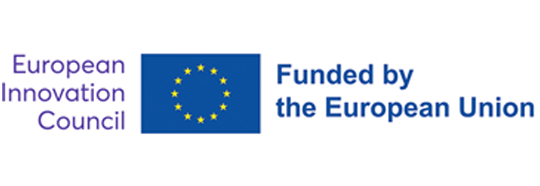Project resources and funding
Project Resources
Funding
This project is generously funded by the European Innovation Council under the Pathfinder program.
Grant number: 101047177


A major challenge facing Europe is its ageing population and associated increase in diagnosed cases of neurodegenerative diseases (NDD). Parkinson’s disease (PD) is associated with tremor and loss of motor functions due to progressive degeneration of dopaminergic neurons in the brain. This can lead to memory loss and dementia, which is associated with short- and long-term injuries and disabilities with emotional, financial, and social burdens for patients, families, and society.
The exact causes and mechanisms underlying PD are still unknown and existing treatments focus on alleviating symptoms and increasing quality of life, but do not halt or reverse disease progression. Although animal models give unique possibilities to study physiological and behavioural mechanisms, drug development fails due to lack of translation to humans. Alternative non-animal NDD models is needed both in terms of better translation, but also to replace expensive and problematic animal experiments.

Beneficiaries
News
|
|
|
|
|
|
|
|
|
|
|
|
|
|
|
|
|
|
|
|
|
|
|
|
|
|
|
|
|
|
|
|
|
|
|
|
|
|
|
|
|
|
|
|
|
|
|
|
|
|
|
|
|
|
|
|
|
|
|
|
|
|
|
|
|
|
|
|
|
|
|
|
|
|
|
|
|
|
CELLINK |
BIO X was used to 3D bioprint human neural tissues with functional connectivity (https://doi.org/10.1016/j.stem.2023.12.009) |
|
|
DTU |
Giorgio Scordo from the DTU team presents the OpenMIND projects in a talk at ISM - Institute of Structure of Matter ( https://www.linkedin.com/posts/giorgio-scordo-6999a05a_additivemanufacturing-3dabrprinting-activity-7172223656532525057-D7y7?utm_source=share&utm_medium=member_desktop) |
|
|
DTU |
Giorgio Scordo from the DTU team presents the µPSL techonolgy used in OpenMIND in a talk at ITS-Biotecnologie, Turin, Italy ( https://www.instagram.com/p/C9454WWI8Kj/?utm_source=ig_web_copy_link ) |

Kick-off meeting
Welcome and overview of OpenMIND project

6th month meeting
International meeting with the OpenMIND consortium and the European Innovation Council

14th month meeting
Third face to face meeting with the OpenMIND consortium
19TH MONTH MEETING
Fourth face to face meeting with the OpenMIND consortium
| Dynamo | DTU | Dynamo magazine -https://issuu.com/dtudk/docs/dynamo_74/18 |

3D embedded printing
This thesis aims at characterizing tridimensional (3D) printed polymers inside a non-Newtonian liquid via a pressure-assisted microsyringe (PAM). Will be tested on non-conductive and conductive polymers and their mechanical and electrical properties will be investigated. The candidate will optimize the polymer blend composition and printing process.
Candidate background: Material Eng. Biomedical Eng., Synthetic Chemistry, Mechanical Eng.
This project is generously funded by the European Innovation Council under the Pathfinder program.
Grant number: 101047177